
Find A Professional
More Items From Ergsy search
-

Are there any apprenticeship routes to becoming an NHS nurse?
Relevance: 100%
-

What types of nursing degrees can I pursue?
Relevance: 91%
-

What are the basic educational requirements to become an NHS nurse?
Relevance: 82%
-

How can I become an NHS Nurse in the UK?
Relevance: 80%
-

What are the career progression opportunities for NHS nurses?
Relevance: 80%
-
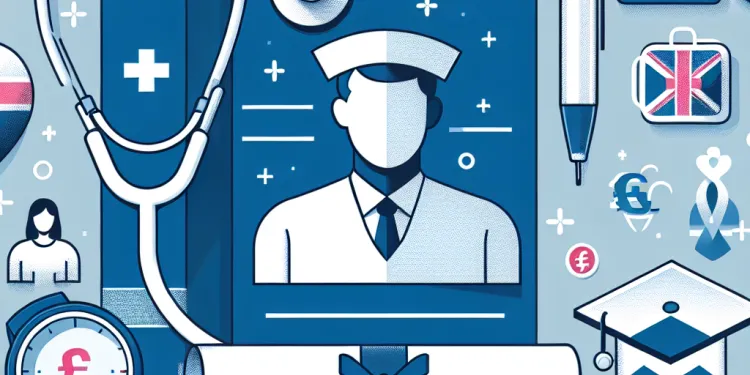
Can I become a nurse in the NHS with a nursing diploma?
Relevance: 74%
-

How long does it take to become an NHS nurse?
Relevance: 66%
-

Is there a minimum age requirement to start nurse training?
Relevance: 60%
-

Can I become an NHS nurse if I have international nursing qualifications?
Relevance: 60%
-

What support systems are available to NHS nurses for continuing professional development?
Relevance: 59%
-
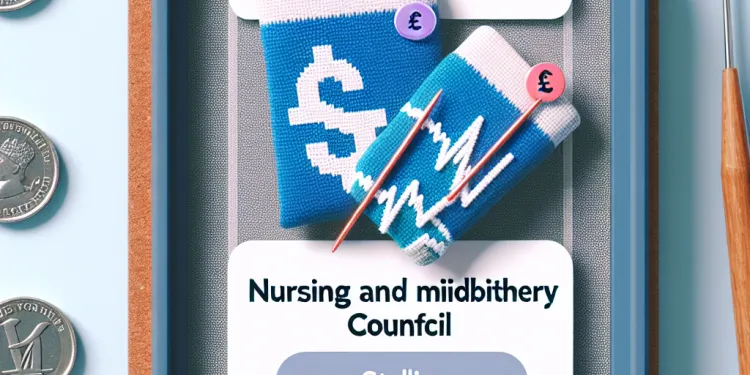
Do I need to be registered with the Nursing and Midwifery Council (NMC) to work as an NHS nurse?
Relevance: 58%
-

What GCSEs or A-Levels do I need to become a nurse?
Relevance: 57%
-

What skills are important for a career in nursing?
Relevance: 56%
-

What funding options are available for nursing students in the UK?
Relevance: 48%
-

What is the process for applying to a nursing degree course?
Relevance: 48%
-

How important is work experience for entering a nursing program?
Relevance: 48%
-

Can I specialize in a certain area of nursing with the NHS?
Relevance: 43%
-

Is it possible to study nursing part-time?
Relevance: 42%
-
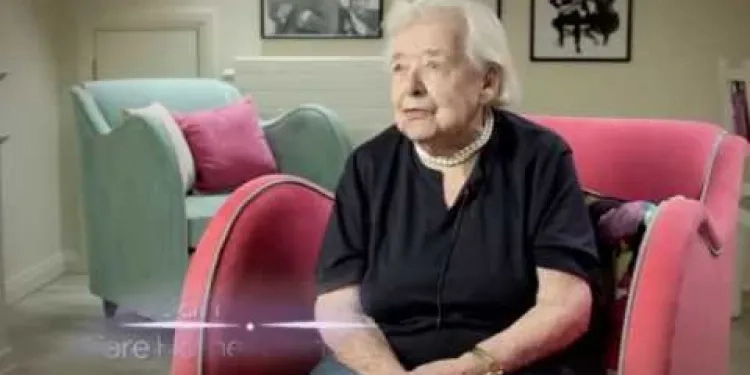
The role of residential and nursing homes
Relevance: 37%
-

How do I choose a good nursing home?
Relevance: 36%
-
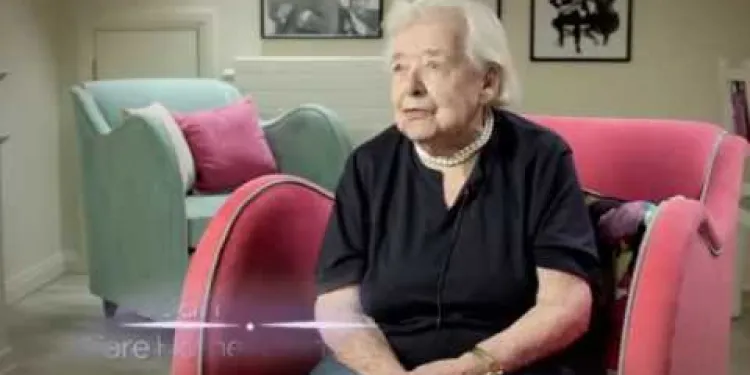
The role of residential & nursing homes
Relevance: 33%
-

How do I choose a good bursing home
Relevance: 33%
-

How physically demanding is a career in NHS nursing?
Relevance: 30%
-
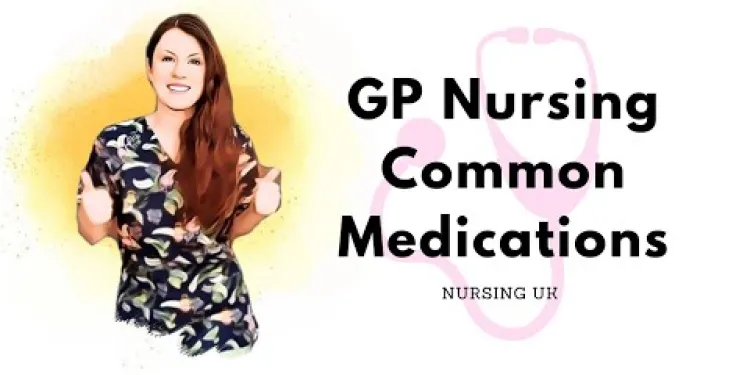
GP Nursing Most Common Medications UK.
Relevance: 30%
-

Can I attend open days to learn more about nursing programs in the UK?
Relevance: 20%
-

Are apprentices entitled to the National Living Wage?
Relevance: 20%
-
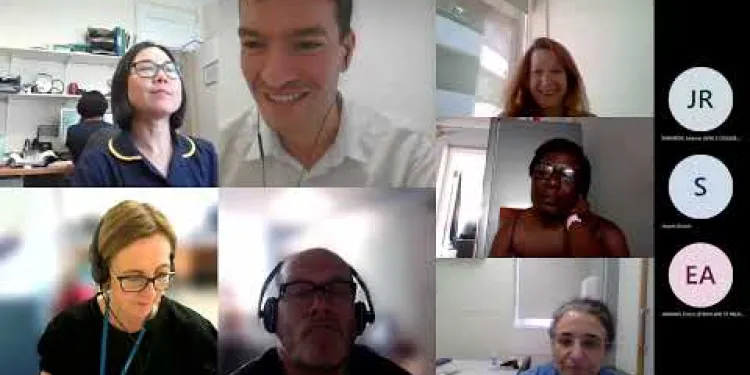
South London Arrhythmia Nurses Forum (16 June 2022)
Relevance: 18%
-

Who can administer Botox?
Relevance: 16%
-

How does the National Trust support career development?
Relevance: 6%
-
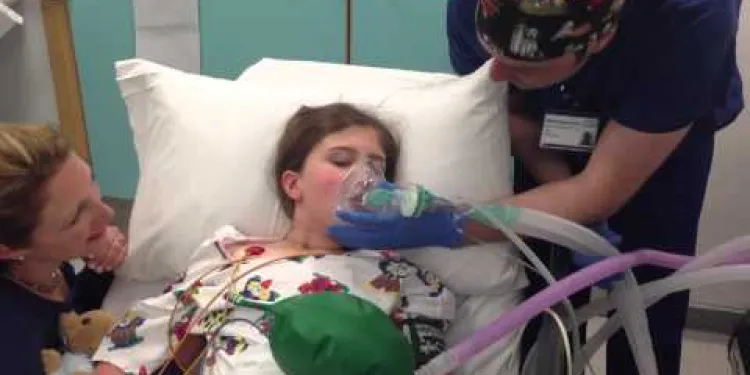
My General Anaesthetic: What's Going To Happen? Sarah's Story at Worcestershire Royal Hospital.
Relevance: 6%
-

What support is available for individuals diagnosed with bowel cancer?
Relevance: 6%
-

What support is available for people with stoma bags?
Relevance: 6%
-
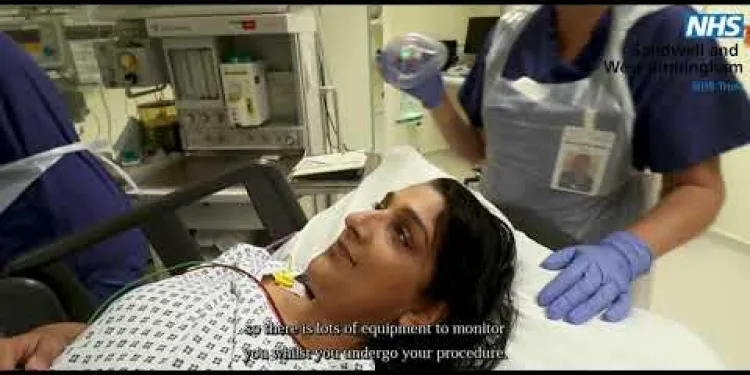
What to expect when visiting our hospitals for surgery | Theatres
Relevance: 6%
-

Having an anaesthetic for your operation - for over 8s
Relevance: 6%
-

The Different Roles in Sexual Health and Family Planning UK
Relevance: 5%
-
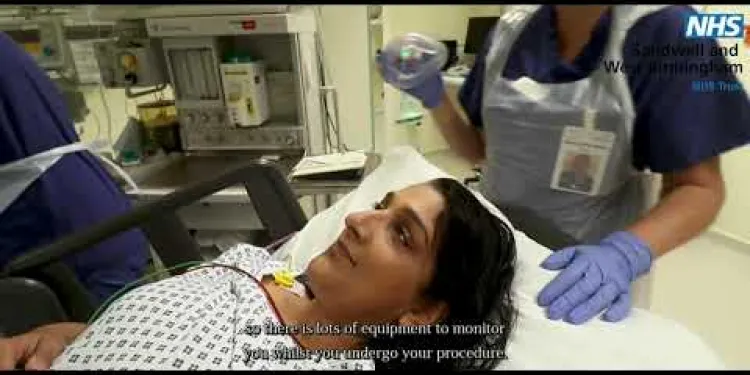
What to expect when visiting our hospitals for surgery | Theatres
Relevance: 5%
-

What to expect on the day of your operation
Relevance: 5%
-

Who should avoid using caffeine pouches?
Relevance: 5%
-

Where can I find support for managing Type 2 Diabetes in the UK?
Relevance: 4%
-
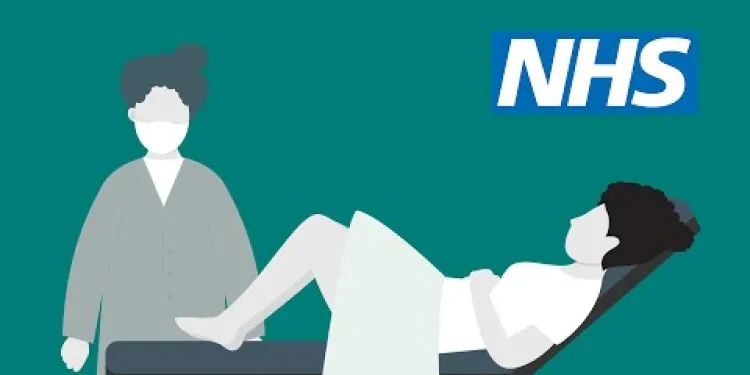
Cervical screening: how it's done | NHS
Relevance: 4%
Introduction to NHS Nursing Apprenticeships
In recent years, the National Health Service (NHS) in the UK has introduced various apprenticeship routes to become a registered nurse. These apprenticeships provide an alternative pathway for individuals who want to enter the nursing profession without pursuing a traditional full-time university degree. This approach not only addresses the growing demand for nurses but also offers inclusive opportunities for individuals from diverse backgrounds.
What is a Nursing Degree Apprenticeship?
A nursing degree apprenticeship is a work-based training program that combines practical on-the-job training with academic study. Apprentices are employed by an NHS organization and study towards a degree in nursing, which is approved by the Nursing and Midwifery Council (NMC). This pathway typically takes four years to complete and allows apprentices to earn while they learn, gaining valuable work experience in a clinical environment.
The Structure of Nursing Apprenticeships
The apprenticeship program is structured to balance both academic learning and practical work. Apprentices are required to attend university part-time, typically on a day-release basis, while spending the rest of their time working in an NHS setting. The academic component covers essential topics such as anatomy, physiology, pharmacology, and patient care, equipping apprentices with the theoretical knowledge needed for nursing practice.
Entry Requirements and Application Process
Prospective nursing apprentices must meet certain entry requirements, which typically include GCSEs in English and Maths at grade C/4 or above, along with relevant Level 3 qualifications such as A-Levels or NVQs. Some NHS Trusts may also require a background in health or social care. Applications are made through NHS job portals or directly through partnering university websites. The selection process usually involves an interview and assessment center to evaluate candidates' suitability for the role.
Benefits of the Apprenticeship Route
Nursing apprenticeships offer several advantages. They provide an opportunity for individuals who may not have the financial means to attend university full-time to still pursue a career in nursing. Apprentices earn a salary while they study, reducing the need for student loans. Additionally, the combination of work and learning helps apprentices develop a wide range of skills, making them well-prepared for their future roles as registered nurses.
Conclusion and Future Prospects
The introduction of apprenticeship routes to nursing is a positive step towards diversifying the NHS workforce and making the nursing profession more accessible. With continuous support from both educational institutions and healthcare providers, nursing apprenticeships are expected to grow, offering more individuals the chance to contribute to the healthcare system. Upon completion, apprentices are eligible to register with the NMC and practice as registered nurses, with opportunities for further career advancement within the NHS.
Introduction to NHS Nursing Apprenticeships
The NHS in the UK now offers apprenticeships to become a nurse. These apprenticeships let people become nurses without going to university full-time. This helps more people from different backgrounds to become nurses.
What is a Nursing Degree Apprenticeship?
A nursing degree apprenticeship is where you work and learn at the same time. You get a job with the NHS and study for a nursing degree. This takes about four years. You get paid while you learn and also get important work experience.
The Structure of Nursing Apprenticeships
Nursing apprenticeships mix learning and working. You go to university part-time and work the rest of the time. At university, you learn about things like the human body, medicines, and taking care of people. This helps you know what you need to be a nurse.
Entry Requirements and Application Process
To become a nursing apprentice, you need certain qualifications. You usually need GCSEs in English and Maths at grade C/4 or higher. You also need Level 3 qualifications like A-Levels or NVQs. Some NHS Trusts might want you to have experience in health or social care. You apply through NHS job websites or university websites. You may have an interview and some tests to see if you are right for the job.
Benefits of the Apprenticeship Route
Nursing apprenticeships have many benefits. They help people who cannot afford full-time university. You earn money while you study, so you don’t need big student loans. You also learn a lot of skills by working, making you ready to be a nurse once you finish the apprenticeship.
Conclusion and Future Prospects
Nursing apprenticeships help make the NHS workforce more diverse and give more people a chance to become nurses. With help from schools and hospitals, these apprenticeships are growing. Once apprentices finish, they can register as nurses and have many job options in the NHS.
Frequently Asked Questions
What is an NHS nurse apprenticeship?
An NHS nurse apprenticeship is a training program that allows individuals to earn while they learn, gaining practical nursing experience while working towards a nursing qualification.
How long does a nursing apprenticeship take?
Typically, a nursing apprenticeship can take between 2 to 4 years to complete, depending on the level of the apprenticeship and the individual's previous experience and education.
What qualifications do I need to start a nursing apprenticeship?
You usually need GCSEs in English and Maths, and sometimes science subjects. Some programs may require A-levels or equivalent qualifications.
Can I become a registered nurse through an apprenticeship?
Yes, the Registered Nurse Degree Apprenticeship (RNDA) allows you to become a registered nurse through an apprenticeship route.
Do nursing apprentices get paid?
Yes, nursing apprentices are paid as they work as part of their training program.
Are there age restrictions for nursing apprenticeships?
There are generally no upper age restrictions for nursing apprenticeships, but applicants must typically be at least 16 years old.
What is a Nursing Associate Apprenticeship?
A Nursing Associate Apprenticeship is a program that trains individuals to become nursing associates, a role that bridges the gap between healthcare assistants and registered nurses.
Do I need previous healthcare experience to apply for a nursing apprenticeship?
Previous healthcare experience is not always required, but some understanding of the healthcare environment can be beneficial.
What support is available for nursing apprentices?
Nursing apprentices receive support from workplace mentors, academic tutors, and their employer throughout the program.
How do I apply for a nursing apprenticeship?
To apply for a nursing apprenticeship, you typically need to apply through an employer offering the apprenticeship program or via the NHS Jobs website.
What is the role of a nursing associate?
A nursing associate is a member of the nursing team who supports registered nurses with delivering care to patients.
Are nursing apprenticeships available in all NHS trusts?
While many NHS trusts offer nursing apprenticeships, availability can vary, so it's best to check with specific trusts.
Can I specialize in a particular area of nursing as an apprentice?
During the apprenticeship, you will gain general nursing skills, but there may be opportunities to focus on specific areas towards the end of the program or after qualification.
Is there a guarantee of a job after completing the nursing apprenticeship?
While many apprentices secure employment with their training provider after completion, a job offer is not guaranteed.
Can international students apply for NHS nursing apprenticeships?
Eligibility can vary, but in general, individuals must have the right to work in the UK to enroll in NHS nursing apprenticeships.
How does the learning structure work for a nursing apprenticeship?
Nursing apprenticeships combine practical on-the-job training with academic learning through a partner university or college.
Do nursing apprentices work full-time?
Nursing apprentices work regular shifts as part of their training, often similar to other healthcare workers, which could involve full-time hours.
What are the potential career paths after completing a nursing apprenticeship?
After completing a nursing apprenticeship, individuals can further their careers by specializing in fields like midwifery, mental health, or advanced practice nursing.
Are there any costs involved in a nursing apprenticeship?
The cost of training is typically covered by the employer and apprentice, meaning apprentices do not pay tuition fees.
What is the starting salary for a nursing apprentice?
Salaries for nursing apprentices vary depending on location and the specific NHS trust, but they generally follow the standard NHS pay bands.
What is an NHS nurse apprenticeship?
A nurse apprenticeship is a way to learn how to be a nurse while working.
Here is how it works:
- You work and train in a hospital or clinic.
- You get paid while you learn.
- You study and take classes to become a nurse.
If you find reading hard, you can use tools like text-to-speech apps. These apps can read the information out loud to you.
An NHS nurse apprenticeship is a training program. It lets people work and study at the same time. They can get real nursing experience and also work towards getting a nursing qualification.
How long is a nursing apprenticeship?
A nursing apprenticeship usually lasts 4 years.
Here are some tips to help you:
- Use a calendar to keep track of the time.
- Ask a friend or teacher for help if you have questions.
- Break big tasks into smaller steps.
Learning to be a nurse can take 2 to 4 years. How long it takes depends on what you know already and the type of training you do.
If you find reading hard, try reading with a friend or using an audiobook. Break your reading into small bits and take breaks.
What do I need to start learning to be a nurse?
You need to have good grades in school. It's helpful to be good at reading, writing, and math.
Helpful tool: Use flashcards to remember important words.
You usually need to have passed some school exams called GCSEs. You need them in English and Maths. Sometimes, you also need them in science subjects.
For some programs, you might need higher-level exams called A-levels or something similar.
Helpful Tips:
- Use flashcards to remember important facts.
- Join a study group to learn with friends.
- Ask a teacher or tutor for help if you find something hard.
Can I be a nurse by doing an apprenticeship?
Yes, you can become a nurse if you do the Registered Nurse Degree Apprenticeship (RNDA). This is a way to learn and work at the same time.
Do nursing trainees get money?
Yes, nursing trainees get money for their work. They learn and work at the same time.
Some helpful tips for understanding:
- Ask your teacher if you have questions.
- Use pictures to help you understand better.
- Practice reading with a friend or family member.
Yes, people training to be nurses get money while they learn on the job.
Can you be too young or too old to start a nursing apprenticeship?
No, there is no age limit. You can start a nursing apprenticeship at any age.
It might help to use picture cards or ask someone to explain it with you.
Most of the time, there is no age limit for nursing apprenticeships. But you usually need to be at least 16 years old.
What is a Nursing Associate Apprenticeship?
A Nursing Associate Apprenticeship is a way to learn how to help nurses. You work and study at the same time. It helps you become really good at helping people feel better.
You can use pictures and videos to learn more easily. Ask a friend or family member if you need help understanding.
A Nursing Associate Apprenticeship is a special training program. It helps people learn to be nursing associates. A nursing associate is someone who helps connect healthcare assistants and nurses.
Do I need to work in healthcare before to be a nursing apprentice?
You do not need to have worked in healthcare before to be a nursing apprentice. You can still apply. It helps if you are interested in caring for people and like helping others.
Here are some tips to help you:
- Talk to someone who is a nurse. They can tell you what it is like.
- Read stories or watch videos about nurses online.
- Practice being kind and helpful at home or in school.
You don't always need to have worked in healthcare before. But, knowing a bit about how healthcare works can be helpful.
What help can nursing apprentices get?
If you are a nursing apprentice, there are many ways people can help you. Here are some:
- Mentors: You will have a mentor. A mentor is a person who helps and teaches you.
- Training: You will get training to learn new skills. Training helps you know what to do in your job.
- Classes: There are classes to help you learn more about being a nurse.
- Learning support: If learning is hard, there are people who can help you understand better.
- Practice work: You will do practice work to learn by doing.
- Talk to someone: If you have questions or are worried, there is always someone to talk to.
These supports will help you succeed as a nursing apprentice.
Nursing helpers get help from people at work who teach them, teachers at school, and their bosses during the program.
How can I sign up for a nursing apprenticeship?
Do you want to learn to be a nurse while you work? Here's how to sign up:
1. Search for Apprenticeships: Look online for places that teach nursing while you work. Use websites or apps to help you find them.
2. Check What You Need: Make sure you have the right school grades or experience needed for the apprenticeship.
3. Apply Online: Fill in a form on the website to say you want to join. You might need an adult to help you.
4. Get Ready for Interviews: If they like your form, they might ask to talk to you. Practice answering questions with someone you trust.
Use tools like speech-to-text or screen readers if you find them helpful. It's okay to ask a friend or family member for help too!
If you want to learn to be a nurse while working, you can apply for a special job called a nursing apprenticeship. You can do this by:
- Looking for places that offer these jobs, like hospitals.
- Checking the NHS Jobs website for openings.
Remember, you might need help from a friend or family member when looking and applying for these jobs. You can also ask a careers advisor at school or college for support. They can help you understand more about what to do next.
What does a nursing associate do?
A nursing associate helps nurses take care of people. They work in hospitals and other places where people need help. They can:
- Help with washing and dressing people
- Check how people are feeling
- Take temperatures or blood pressures
- Help nurses with their jobs
Tools that can help:
- Pictures that show what a nursing associate does
- Videos about nursing associates
- Talking to someone who is a nursing associate
A nursing associate helps nurses take care of people who are sick or need extra help. They work as part of the nursing team.
Can you become a nurse apprentice at every NHS hospital?
Not every NHS hospital can train nurse apprentices. It's a good idea to ask the hospital if they have a program. You can also find out by looking online or asking someone who works there.
Helpful Tip: You can ask a teacher or a friend to help you check online.
Many NHS groups have nurse training programs. Not all places have them, so it’s good to ask each group.
Can I learn to work in a special area of nursing while training?
Yes, you can. As a student nurse, you can choose to learn about a special area, like helping children or older people.
Ask your teacher for advice on what areas you can choose. You can also use tools like pictures or videos to help you learn better.
When you do the apprenticeship, you will learn basic nursing skills. Later, you might get a chance to learn more about special areas. This could happen at the end of the program or after you finish.
Will I get a job after the nursing apprenticeship?
When you finish the nursing apprenticeship, you might get a job, but it is not guaranteed. It's a good idea to talk to your teacher or career advisor. They can help you understand what to do next. You can also look for job fairs or ask hospitals if they have job openings.
After finishing their training, many apprentices get jobs with the company that trained them. But not everyone is promised a job.
Can students from other countries apply to be NHS nursing apprentices?
If you are a student from another country, you might want to be a nurse with the NHS.
Some things can help you:
- Talk to someone at your school for help.
- Look for NHS apprenticeship rules online.
- Ask if you need a visa or special papers.
Remember, you can ask questions if you need help. It is okay to ask for support.
To join an NHS nursing apprenticeship, you usually need to be allowed to work in the UK. This can be different for some people.
How do you learn in a nursing apprenticeship?
You will work and learn at the same time. You will get help from teachers and workmates.
Tips to help you:
- Use simple checklists to remember tasks.
- Ask questions if you don't understand.
- Practice what you learn by doing it.
Nursing apprenticeships let you learn by doing real work. You also study at a university or college.
Do people learning to be nurses work all day?
Nursing apprentices have jobs where they help take care of people. They work regular hours like other people in hospitals or clinics. They often work full-time, which means they work most of the day, like a typical job.
What jobs can you do after a nursing apprenticeship?
After you finish learning to be a nurse, you can choose different jobs:
- Staff Nurse: Look after people in hospitals.
- Community Nurse: Help people in their homes.
- School Nurse: Care for kids in schools.
- Practice Nurse: Work in a doctor's office.
- Health Visitor: Visit families with young children.
Tip: Talk to your teacher or a career guide, they can help you pick the best job for you.
After you finish learning to be a nurse, you can do more training to work in special areas like helping with babies being born, helping people with mind health, or doing even more advanced nurse jobs.
Do you have to pay money for a nursing apprenticeship?
The boss and the person learning the job usually pay for the training. This means the person learning does not have to pay school fees.
How much money does a new nursing apprentice earn?
How much money nursing apprentices get paid can be different. It changes depending on where they work and the NHS trust they are with. But usually, their pay follows the NHS pay rules.
Useful Links
- Ergsy carfully checks the information in the videos we provide here.
- Videos shown by Youtube after a video has completed, have NOT been reviewed by ERGSY.
- To view, click the arrow in centre of video.
- Most of the videos you find here will have subtitles and/or closed captions available.
- You may need to turn these on, and choose your preferred language.
- Go to the video you'd like to watch.
- If closed captions (CC) are available, settings will be visible on the bottom right of the video player.
- To turn on Captions, click settings .
- To turn off Captions, click settings again.
More Items From Ergsy search
-

Are there any apprenticeship routes to becoming an NHS nurse?
Relevance: 100%
-

What types of nursing degrees can I pursue?
Relevance: 91%
-

What are the basic educational requirements to become an NHS nurse?
Relevance: 82%
-

How can I become an NHS Nurse in the UK?
Relevance: 80%
-

What are the career progression opportunities for NHS nurses?
Relevance: 80%
-

Can I become a nurse in the NHS with a nursing diploma?
Relevance: 74%
-

How long does it take to become an NHS nurse?
Relevance: 66%
-

Is there a minimum age requirement to start nurse training?
Relevance: 60%
-

Can I become an NHS nurse if I have international nursing qualifications?
Relevance: 60%
-

What support systems are available to NHS nurses for continuing professional development?
Relevance: 59%
-

Do I need to be registered with the Nursing and Midwifery Council (NMC) to work as an NHS nurse?
Relevance: 58%
-

What GCSEs or A-Levels do I need to become a nurse?
Relevance: 57%
-

What skills are important for a career in nursing?
Relevance: 56%
-

What funding options are available for nursing students in the UK?
Relevance: 48%
-

What is the process for applying to a nursing degree course?
Relevance: 48%
-

How important is work experience for entering a nursing program?
Relevance: 48%
-

Can I specialize in a certain area of nursing with the NHS?
Relevance: 43%
-

Is it possible to study nursing part-time?
Relevance: 42%
-

The role of residential and nursing homes
Relevance: 37%
-

How do I choose a good nursing home?
Relevance: 36%
-

The role of residential & nursing homes
Relevance: 33%
-

How do I choose a good bursing home
Relevance: 33%
-

How physically demanding is a career in NHS nursing?
Relevance: 30%
-

GP Nursing Most Common Medications UK.
Relevance: 30%
-

Can I attend open days to learn more about nursing programs in the UK?
Relevance: 20%
-

Are apprentices entitled to the National Living Wage?
Relevance: 20%
-

South London Arrhythmia Nurses Forum (16 June 2022)
Relevance: 18%
-

Who can administer Botox?
Relevance: 16%
-

How does the National Trust support career development?
Relevance: 6%
-

My General Anaesthetic: What's Going To Happen? Sarah's Story at Worcestershire Royal Hospital.
Relevance: 6%
-

What support is available for individuals diagnosed with bowel cancer?
Relevance: 6%
-

What support is available for people with stoma bags?
Relevance: 6%
-

What to expect when visiting our hospitals for surgery | Theatres
Relevance: 6%
-

Having an anaesthetic for your operation - for over 8s
Relevance: 6%
-

The Different Roles in Sexual Health and Family Planning UK
Relevance: 5%
-

What to expect when visiting our hospitals for surgery | Theatres
Relevance: 5%
-

What to expect on the day of your operation
Relevance: 5%
-

Who should avoid using caffeine pouches?
Relevance: 5%
-

Where can I find support for managing Type 2 Diabetes in the UK?
Relevance: 4%
-

Cervical screening: how it's done | NHS
Relevance: 4%